The Force Is With Him: Paul Sun-Hyung Lee Talks His Career, ‘Mandalorian’ Role and Star Wars Toy Collection

Photo: Paul Alexander
Paul Sun-Hyung Lee is rummaging through a warehouse filled with the remnants from five seasons of the hit CBC TV show Kim’s Convenience. There are lamps, chairs, refrigerators, ping pong paddles and a magazine rack with fake issues wrapped in cellophane. Production is finally letting go of the props, after CBC revealed in March it wasn’t renewing the Kim’s spin-off series, Strays, for a third season. Their shared universe is officially coming to an end, and so has their time under the sterile light in this east-end Toronto warehouse.
Lee and his wife Anna — a sign-language interpreter who manages his schedule and generally keeps his head on straight — are here with fellow Kim’s actor and CBC’s Run the Burbs creator Andrew Phung, who had been tipped off about the sale by a fan. Phung seizes a bunch of Season 1 Kim’s Convenience DVDs, which he wants to send to fans who connect with him online or at events like FanExpo. The Lees grab a skateboard for their younger son, Miles, 13. “We don’t do this every weekend, just so you know,” Anna points out, having a bittersweet laugh at how we ended up sorting through what Phung calls “the ruins of six years” of their lives.
The beloved show about a Korean Canadian family that runs a Toronto corner store, led by Lee’s comically cutting patriarch, Appa, aired on CBC from 2016 to 2021. There was supposed to be a sixth season send-off, but that never happened because of a widely publicized rift involving producer Kevin White, co-creator and Korean Canadian playwright Ins Choi and cast members like Jean Yoon, who played matriarch Umma, and Simu Liu, who played the rebellious son, Jung. The two actors accused the mostly non-Asian writers and producers of ignoring their insight into the characters, and Yoon has said some storylines were “overtly racist.” There was no final “Okay, see you,” as Appa used to say.
Lee, who originated the Appa role in the 2011 Toronto Fringe Festival production, is less in his feelings. “When I see those trinkets, the set pieces, they don’t make me sad,” he says later that day in his kitchen, explaining that Kim’s was always about the people involved. “I’ve gone through the whole cycle of emotions about the show being done and not having a proper send-off that we would have liked. But that’s a perfect example of the way life is. It’s not often how you expect it to be. What you make of it and how you move forward is just as important.”
A few days before the set sale, I meet Lee, who turned 50 last August, at a coffee shop near his Danforth Avenue home. He has staked out a small table, but when the leather couches near an artificial fireplace are freed up, we hustle over with his blueberry lemon muffin and Americano and my scone. We’re feeling giddily victorious, because Lee has never been able to plant a flag on those perpetually occupied couches. In the years that I’ve known him, Lee has always been a warm and welcoming presence, but he’s also not one to hold back. The first time I met him, Lee gave me grief for not being harsh enough when I reviewed a movie we both disliked. That made me a fan.
Lee is sporting a black graphic T-shirt that reads “directed by Dave Filoni” — a shout out to the producer and director of the Star Wars series The Mandalorian. The Emmy-winning show, which launched the Disney+ streaming service in 2019 and the Star Wars universe’s expansion into live-action spin-offs like Obi-Wan Kenobi and Andor, takes place in the aftermath of Return of the Jedi. It stars Pedro Pascal as a bounty hunter who soars across the galaxy, zapping his way through the hostile remains of Imperial forces while protecting an elfish green alien child named Grogu, who the internet dubbed “Baby Yoda.”
Filoni made Lee’s dreams come true when he recruited the actor into a galaxy far, far away, casting him as Captain Carson Teva in The Mandalorian’s second season. Lee has been a devotee of Star Wars since his father took him and his sister to see George Lucas’ original 1977 movie. “Star Wars had everything that I wanted,” says Lee, who had the toys as a kid. “The tie-in is the toys,” he adds, explaining how integral Star Wars merchandising was — and still is — to fan development. “The toys capture your imagination. Suddenly you have an actualization, a physical representation, of these characters and the ships that you can create your own stories with.”
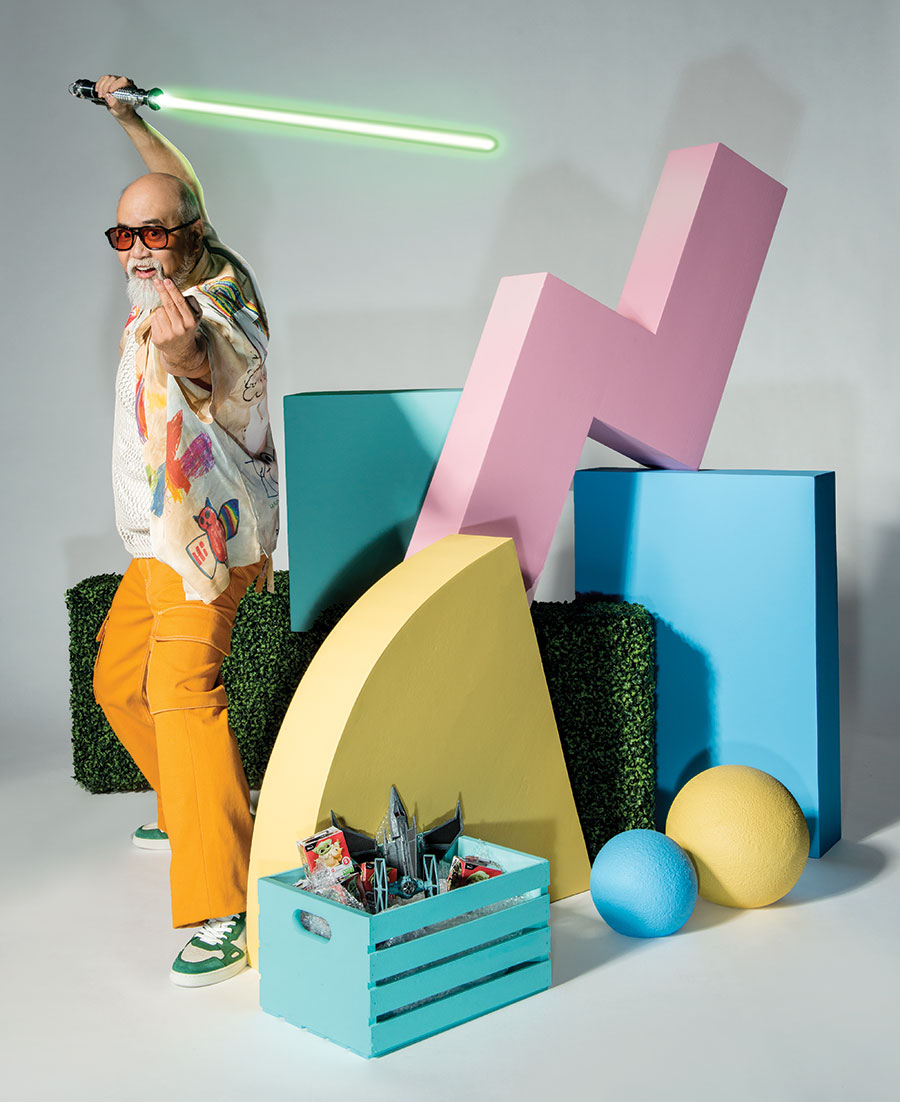
Today, Lee is a collector of life-sized lightsabers and 1/6th scale Star Wars action figures. He also has a YouTube channel, called Bitterasiandude Inc., where he spends hours engaging with fans as he unboxes Star Wars figurines, shows off his cosplay at geek conventions and shares his experiences playing Captain Teva on The Mandalorian, which just aired the Season 3 finale in April. The character is an interstellar sheriff-like figure who pilots an X-wing, the same iconic Rebel Alliance starfighter craft that Luke Skywalker flies in the original movie trilogy. Lee also appears as Teva in The Book of Boba Fett, another spin-off series about the titular bounty hunter responsible for capturing Harrison Ford’s Han Solo.
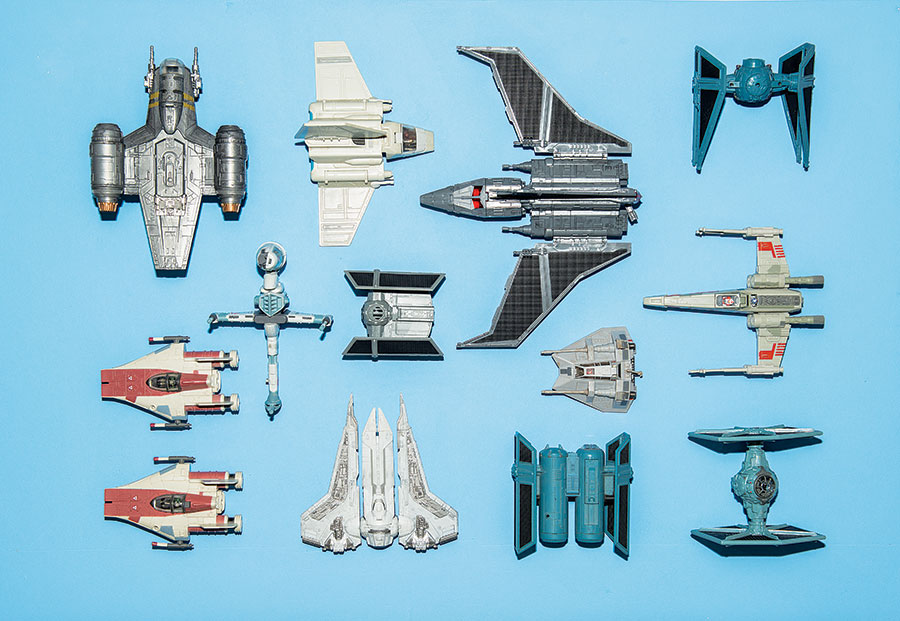
It turns out Filoni is a big fan of Kim’s Convenience, whose audience grew after Netflix launched the series in the U.S. in 2018 and increased exponentially as viewers discovered it during the pandemic lockdown. Kim’s paved the way for Simu Liu to kick up a storm as Marvel’s first Asian lead in the pandemic-era box-office hit, Shang-Chi and the Legend of the Ten Rings, and for Lee to get on Filoni’s radar. He didn’t even need to audition for The Mandalorian.
We may assume Captain Teva, who now has a Twitter emoji and character poster, will be returning for Season 4 of The Mandalorian, but Lee couldn’t say for sure, because they don’t tell him much in advance. When he shows up on set, he’s armed with the script for his scenes and very little context. “I just know my little slice of the pie,” says Lee, describing the extraordinary lengths Lucasfilm goes to make sure the plots of their shows aren’t leaked, like the plans to the Death Star. “It’s kind of like being in a resistance cell. If one of you gets captured, you can’t rat out everyone else.”
Some of that secrecy was in play when Lee auditioned for his role in the upcoming Netflix series Avatar: The Last Airbender (not to be confused with the blockbuster James Cameron movies). The live-action adaptation of an animated Nickelodeon kids’ show — about people who telekinetically manipulate elements like air and water — is in post-production, with no set release date. Lee thought he was submitting a tape for a basketball movie called Blue Dawn, since the casting call said he would be playing Harold, a former great coming out of retirement to mentor his basketball prodigy nephew. It wasn’t until the chemistry read — a meeting to see if actors connect — over Zoom that Lee realized he was auditioning to play Uncle Iroh in Avatar, who mentors his nephew Zuko (Dallas James Liu) to shoot fire instead of basketballs. “Sh– got real,” he says.
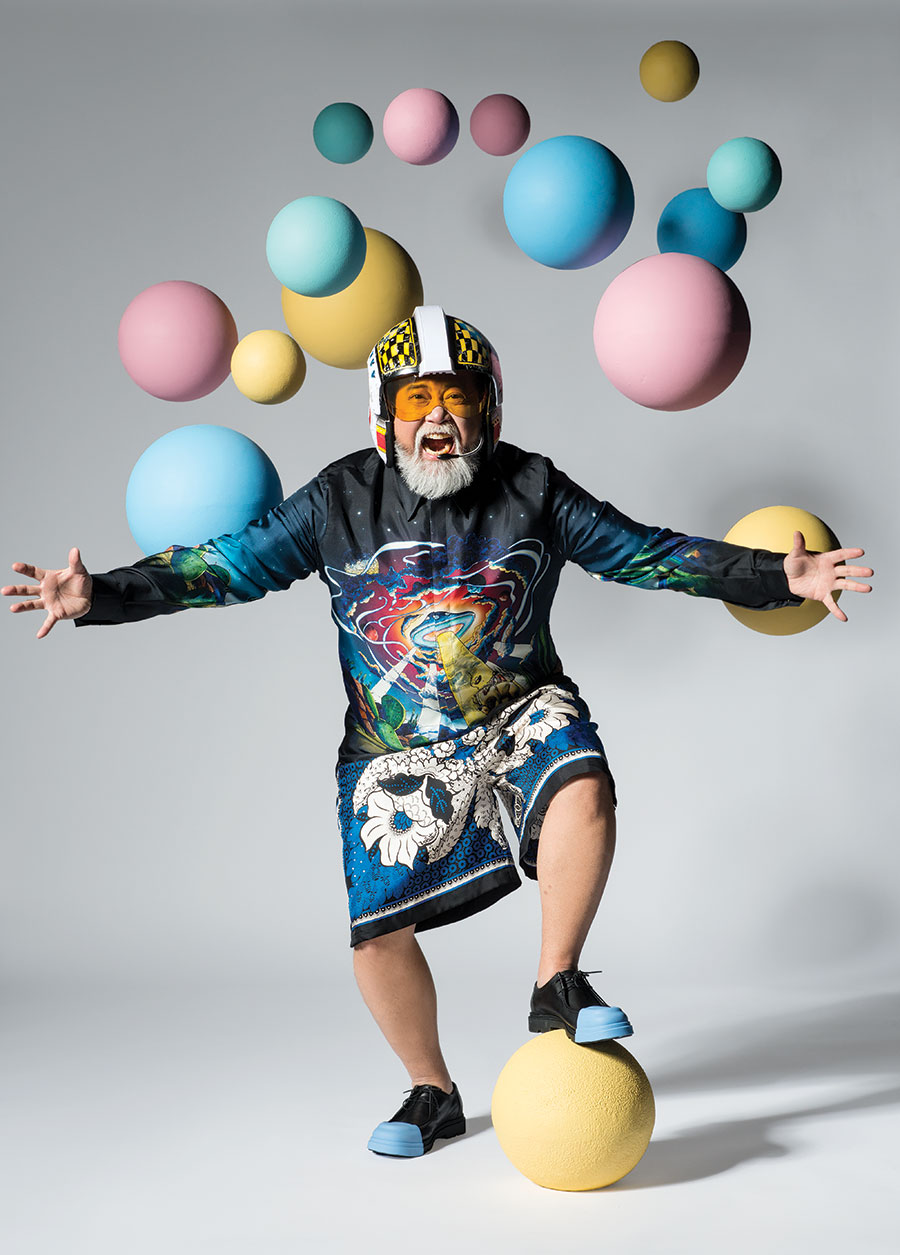
His facial hair became a fussed-over piece of real estate due to overlapping shooting schedules on Last Airbender’s first season in Vancouver and The Mandalorian’s third in Los Angeles. To play Uncle Iroh in Avatar, he had to shave off his iconic mustache and endure a gruelling process where his beard was extended with hair applied by hand. “That’s a fake mustache in all my episodes on Mando,” Lee says.
This summer, he is enjoying his downtime by taking in Blue Jays games, helping to coach Miles’ baseball team, savouring regular walks with Anna and their dog and nurturing their eldest son Noah’s acting ambitions. He wants to study theatre, and was recently cast in a bit part as the son of Lee’s character on the AppleTV+ series Jane. Noah’s mustache also had to go. “Oh my god,” says Anna, quoting their agent’s reaction. “How many people in your family do I have to discuss facial hair with??!!”
Lee modelled Appa after his father, who, along with his mother, was a teacher in Korea. Lee says they left a comfortable life to move to Canada, where they had little grasp of the language, but wanted to give their two kids — Lee and his older sister — a shot at better opportunities. (He jokes that they were probably just “on the run.”) They arrived in London, Ont., when Lee was an infant, moved a few years later to the Toronto suburb of Scarborough, and finally moved to Calgary when the oil industry was booming. Lee’s father owned a franchise restaurant there, Captain Scott’s Fish & Chips, and his mom managed a Mac’s convenience store. Lee worked at both until he finished high school.
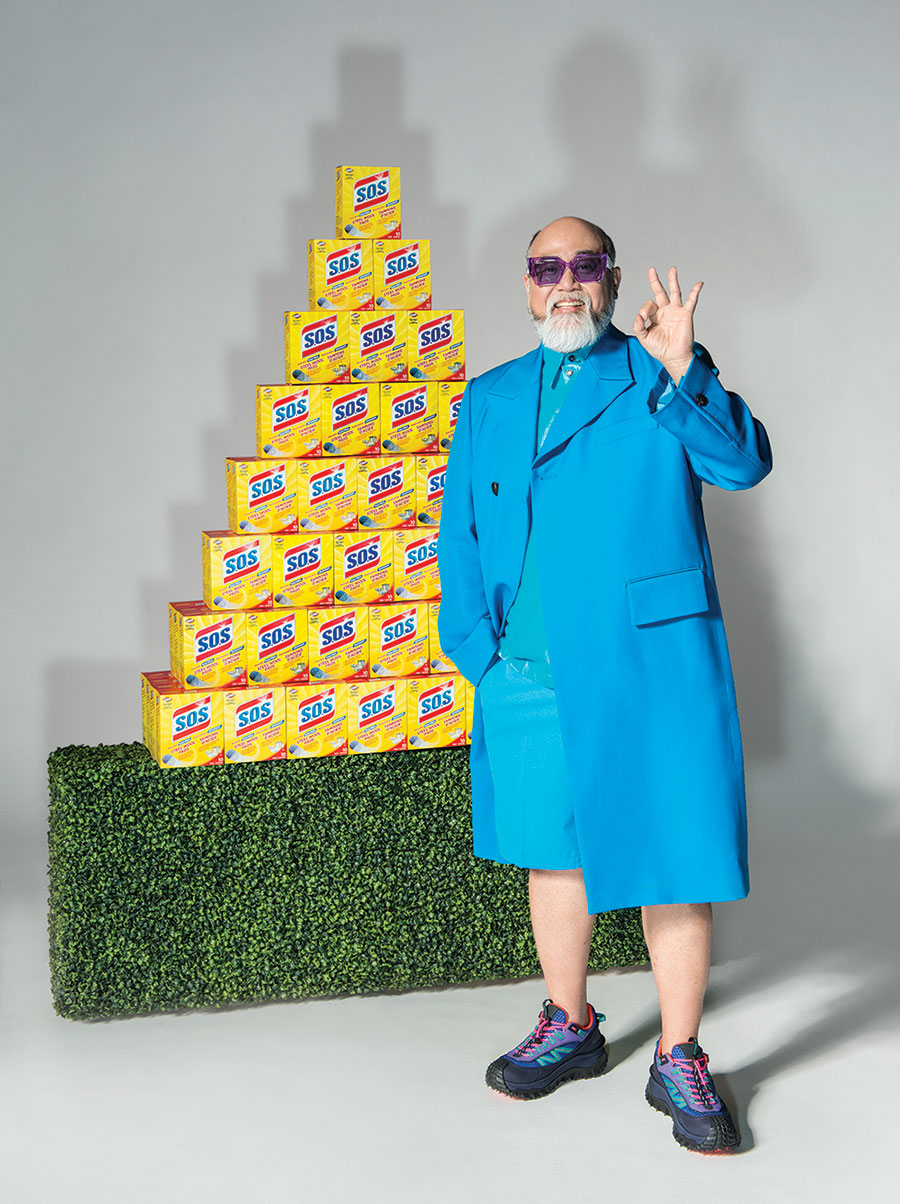
In Korea, Lee’s father taught phys-ed, while his mom taught literature; they encouraged a focus on academics and harboured the hope their son would become a doctor or engineer — roles he would later play on TV. They were never enthusiastic about acting. In his 20s, Lee discovered his uncle was a struggling Korean actor. “My dad was terrified that I was going to die penniless like his older brother, who he loved,” says Lee.
He left Calgary for theatre school at the University of Toronto and, afterwards, made his debut in a movie of the week. He later landed a role portraying Randy Ko, an engineer and sci-fi fan, in the Global TV soap opera Train 48, which ran from 2002 to 2005. Other than that, he was mostly relegated to bit parts, building a speciality as the walk-on doctor or scientist tasked with delivering expository dialogue. This, after all, was before Crazy Rich Asians and Fresh Off the Boat, before a new wave of narratives began changing Asian representation onscreen, when actors like Lee had to compete to play caricatures.
“I was very, very bitter, because there wasn’t a lot of work for me, and the type of work that was available for me was ridiculous,” says Lee. These were the experiences and exhausted emotions that would inspire his cheeky social media moniker and brand, Bitterasiandude. “You’re forced to audition for these dehumanizing parts where you’re perpetuating stereotypes. The added insult is not booking them, either.”
Lee’s friend and Avatar co-star, Korean American actor Daniel Dae Kim, shared a similar struggle to break into the industry. “We were all playing roles like that, because that’s all that was available to us,” he says in a phone interview from Hawaii. Kim, who has been a fan of Lee’s since he saw Kim’s Convenience on stage in Toronto, left the business in 2000 because of the lack of opportunity, but eventually landed regular parts on popular shows like Angel, Lost and the long-running Hawaii Five-O.
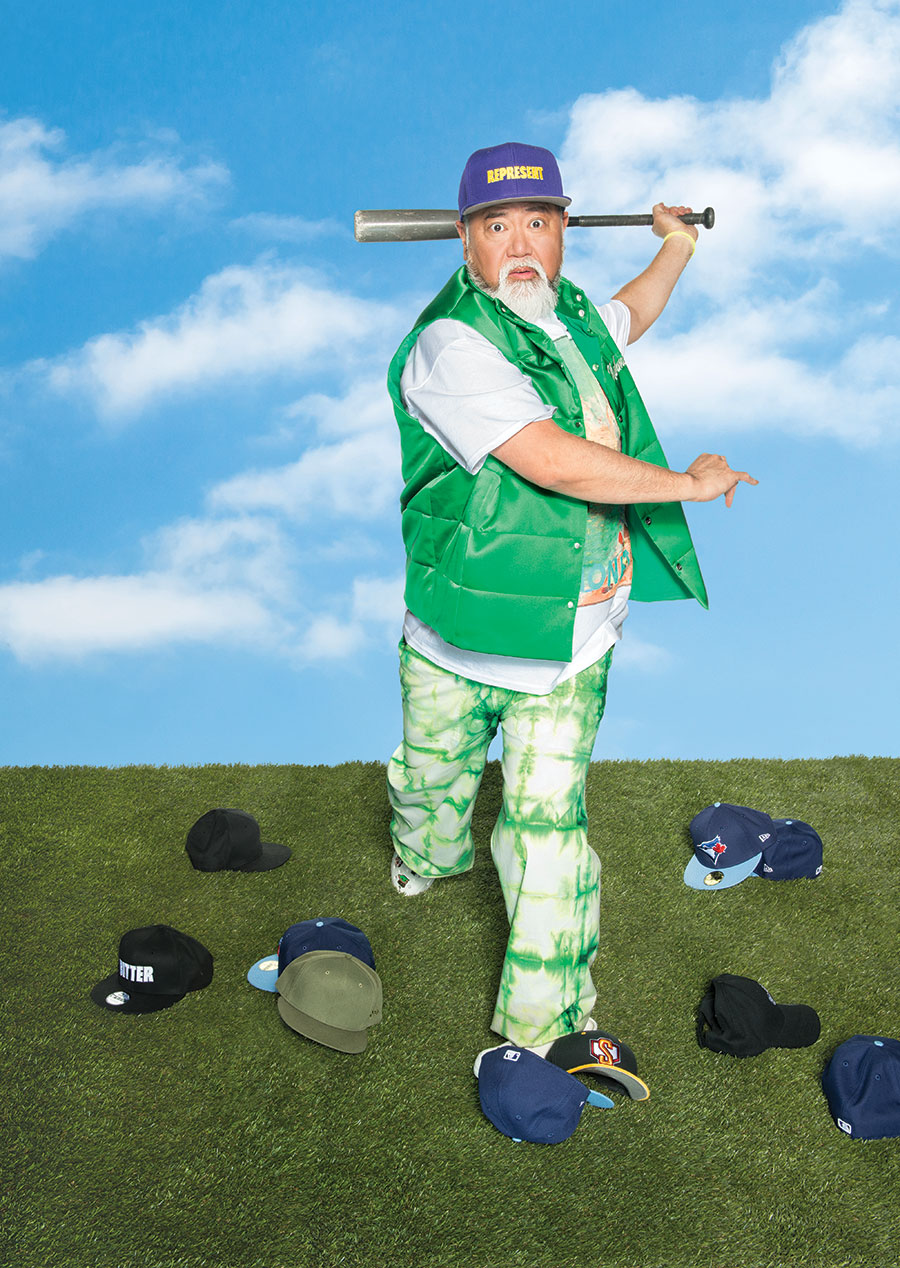
Notably, Kim parlayed his success on those shows into a deal with CBS that included creating his own production company, 3AD. Through 3AD, he secured the rights for a Korean television show, adapted it into the popular network series The Good Doctor and cast himself as Dr. Jackson Han in the first season. “The reason why [3AD] was started was because I saw the dearth of opportunity,” says Kim, adding that even when things were getting better, there were still certain tropes at play. At the time, Asian actors were cast with either a complete denial of their ethnicity (like the scientist played by BD Wong in Jurassic Park) or where the storytelling only wanted to explore issues of identity (think coming-of-age dramas like The Namesake, starring Kal Penn). “I saw the limits of where we were. I wanted to be a part of positive change.”
On stage, Kim’s Convenience was a departure from the tropes, not to mention a game-changing gamble for Lee. He was approached to do the play, written by Choi, for the Toronto Fringe Festival in 2011, which meant bringing home next to no money for a whole summer, tapping out of what is typically the busiest time for actors. Anna recalls taking that prospect to Lee’s agent. “He said, ‘Listen, this isn’t going to pay me anything but it’s a role I have to do.’ The role was something he’d never had a chance to play before. The voice was his dad’s. And his agent was like, ‘Sure, do it.’”
The Fringe show was a hit and the play was remounted for a blockbuster run at Soulpepper Theatre in 2012. Lee estimates he played Appa on stage 500 times — and well over a thousand if you count run-throughs and readings up to, and including, the off-Broadway production in 2017. He was the only constant, starring opposite three Ummas, four Janets, four Jungs and three Alexes, all before the gritty, hard-hitting play lost its edge when it was adapted into an accessible TV sitcom and turned Appa from a toxic, embittered immigrant into a teddy bear.
Like the Oscar-winning movie Everything Everywhere All at Once and the new Netflix hit series Beef the Kim’s Convenience stage production wasn’t afraid to show flawed and angry Asians. “[The play is] one of these shows where you laugh, because it comes out of the uncomfortableness that you have with this angry, burned-out, vicious character,” Lee says about Appa. “He’s not trying to be malicious. He just fully believes that he is correct and that everybody else is dumb.”
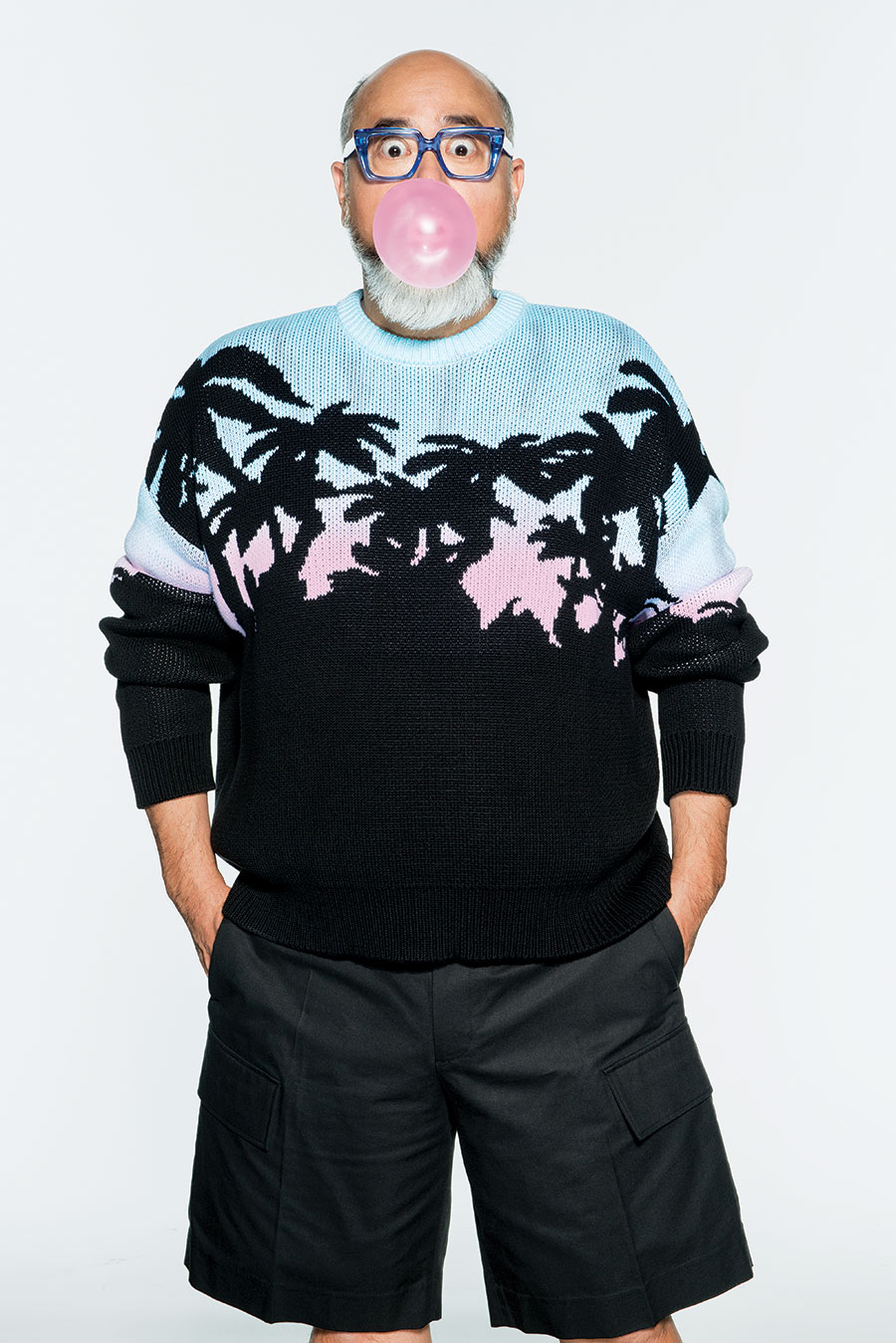
Soulpepper artistic director Weyni Mengesha explains that Choi “always had a deep desire to present true conflict,” and the show challenged younger and older generations to consider how they either disappoint or limit each other. “[Choi] didn’t soften the blows for either party. He made sure that conflict was real,” says Mengesha, the play’s original director, who has won Dora and Dramatic League awards for her work directing everything from ’da Kink in My Hair to Power of Sail starring Bryan Cranston.
Lee says Mengesha, the Toronto-raised child of Ethiopian immigrants, steered him away from softening his character. “I like to make people laugh,” says Lee, who would lean into the humour when performing at Fringe. “At $10 a ticket, you could be off the cuff and play the laughs. I’m cheap that way.” That changed when the show was remounted for Soulpepper under Mengesha’s direction. “Weyni was like, ‘Don’t play it like a joke,’” says Lee. “She said, ‘If you play it like a joke, you’re training the audience just to laugh at you. They won’t ever take you seriously. When there is that moment when you need them to be on your side, you’ve already trained them to just laugh at whatever you say. You’re not going to reach them. You need to train the audience to laugh with you, but cry for you at the same time.’ That was the best note I ever got.”
Lee has been playing Appa since his late 30s, which made the best of his balding head and grey facial hair. It also led some people to believe he was a lot older and more mature than he was. “There is a weird sense of gravitas that people just automatically assume that I have because of the roles that I’ve played,” says Lee. “Whereas, I’m a f–king goof, man.” We are, of course, talking about a guy whose house is overflowing with action figures.
Whenever I bring up the toys in front of Anna, Lee acts like a teenager about to get in deep trouble. She has been extremely accommodating, and he clearly doesn’t want to push it. When we arrive at his home after the set sale, in the living room there’s a five-by-three-foot box with a giant lightsaber and other Star Wars toys in it. “Paul’s defence is that ‘I didn’t buy this,’” says Anna, explaining that this particularly obtrusive box of “Mando Mania” toys was a gift from Hasbro.
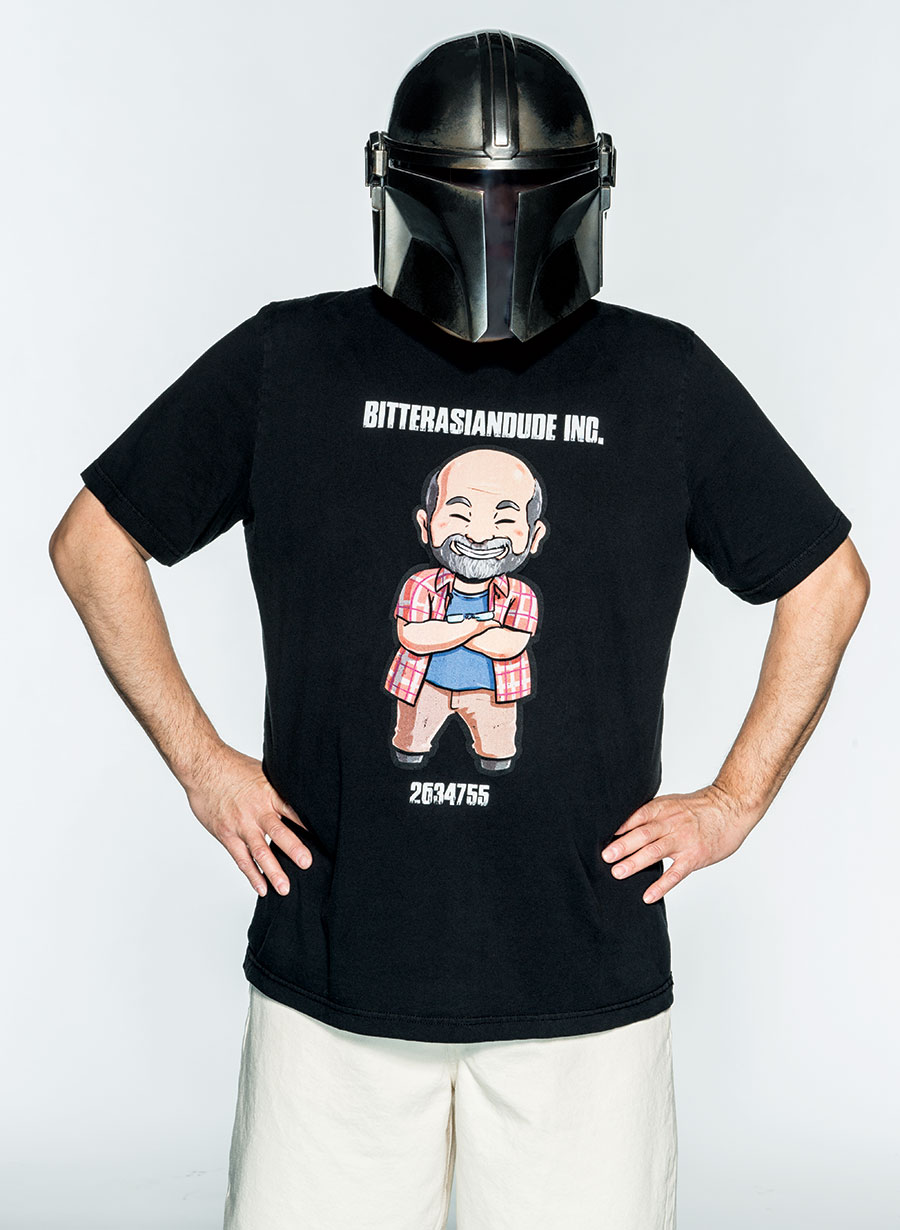
Lee walks me through how he graduated from collecting Kenner 3.75-inch action figures with five points of articulation to the six-inch figures from Hasbro’s Black series — “they’re for the adult premium collectors” — to the 1/6th scale figures from Hot Toys, a Hong-Kong based company, which can cost almost $400 each. He became a serious collector in 2016, when Kim’s launched on CBC and he had TV money. “I now have the financial means to indulge in that passion,” he says. “Ten years ago, there’s no way I’m buying all these toys, because we couldn’t afford it.”
Most of Lee’s collection is in boxes in the basement, because the family is still settling into and fixing up a new house. His Bitterasiandude merchandise — along with gifts from fans, like a 3D-printed Carson Teva action figure — is scattered around the house. There’s also a display in his bedroom that is currently the backdrop for Lee’s YouTube videos, filled with lightsabers, an X-wing pilot and Mando helmet, a Joytoy-brand Mecha and a Hot Toy of Mandalorian character Axe Woves. But the studio will eventually move to the basement with the rest of the toys, where he will continue to broadcast for more than two hours at a time as he engages with his 18,500 followers.
“I like to talk,” says Lee. “That’s a skill that I’ve developed from the years from giving interviews. We’re in this golden age where people like to listen to livestreams.” Now that Bitterasiandude Inc. has sold enough memberships to be a self-sustaining enterprise, Lee has a Plan B. “There’s a part of me that thinks if I never book another gig again, what a challenge it would be to dive into that world and make a hustle doing that.”
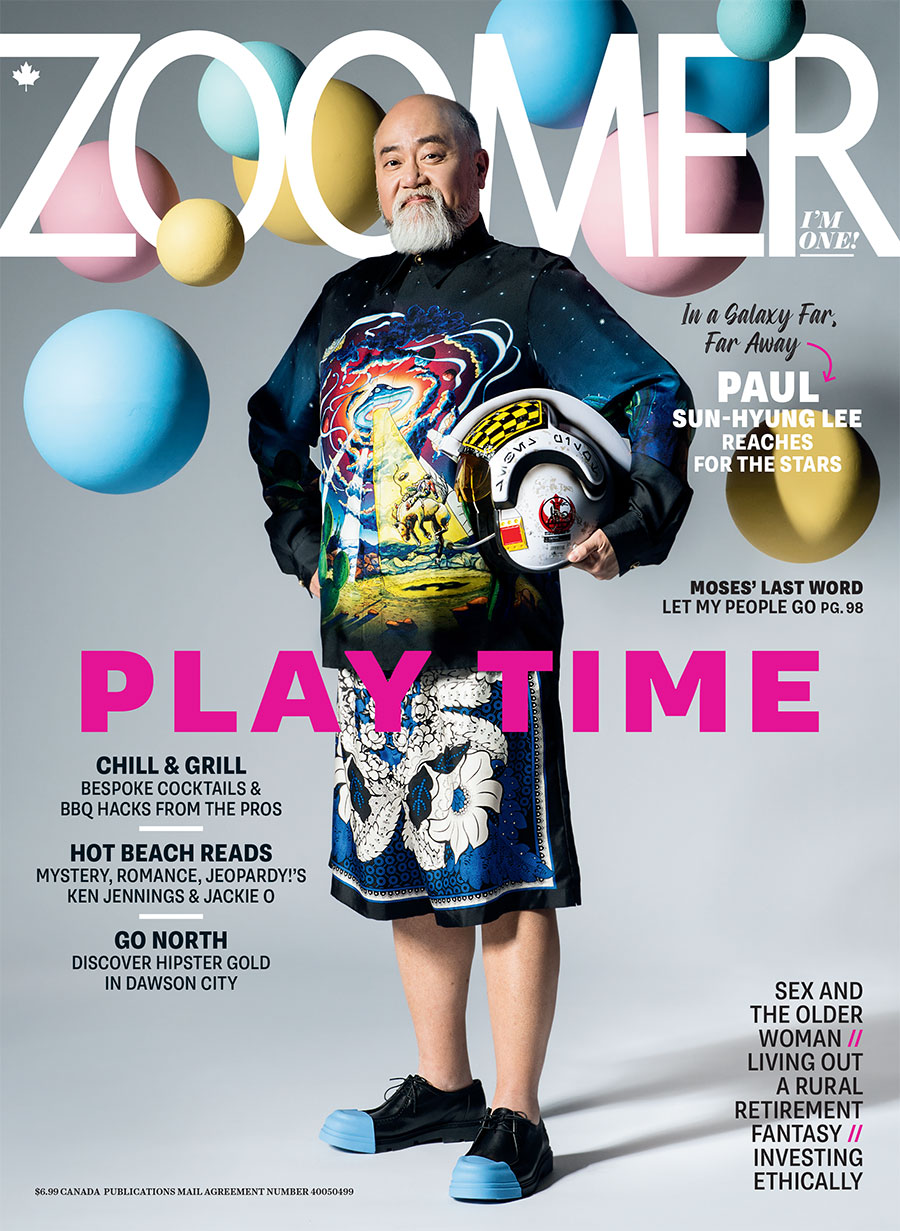
Lee’s cachet with fans is fascinating to watch, not just on his YouTube channel, but out in the world. In the coffee shop or at the set sale, he warmly embraces strangers who gush about how much they love his work. He’s been welcoming these interactions for years because of Kim’s popularity, but The Mandalorian blasted him into a whole new star system, and he can’t go out in public for long before fans ask him to pose for a selfie. “I said to the boys, ‘This is something I need to do,’” Lee says. “It’s a sense of reciprocity. They support us, so I need to support them.” When Noah went to a university open house recently, Anna cautiously decided Lee needed to stay home. “Just because it ends up being an appearance,” she explains. “Then it detracts from why we’re there.”
What jumps out among his fans is that Lee is the connective tissue between the Kim’s and Star Wars communities. The cross-pollination between the two universes tends to express itself in fun ways. If you visit Storm Crow Manor, a popular Toronto restaurant teeming with Star Wars decor, you’ll see a tribute to Lee’s Kim’s Convenience character on the menu: Appa’s Korean Fried Chicken Sandwich. Over at Lee’s house, among many fan gifts, is a framed Photoshopped picture that sums up the expansive community Lee has built and a legacy that continues to grow. His Star Wars character, Captain Carson Teva, is standing on a street corner chatting to Appa, with his X-wing outside the Kim’s Convenience store, ready to blast off.
Creative Direction, Stephanie White / Fashion Direction, Matthew Chow Set Design, Daniel Onori Grooming, Tana D’Amico
A version this article appeared in the June/July 2023 issue with the headline ‘The Force Is With Him’, p. 40.